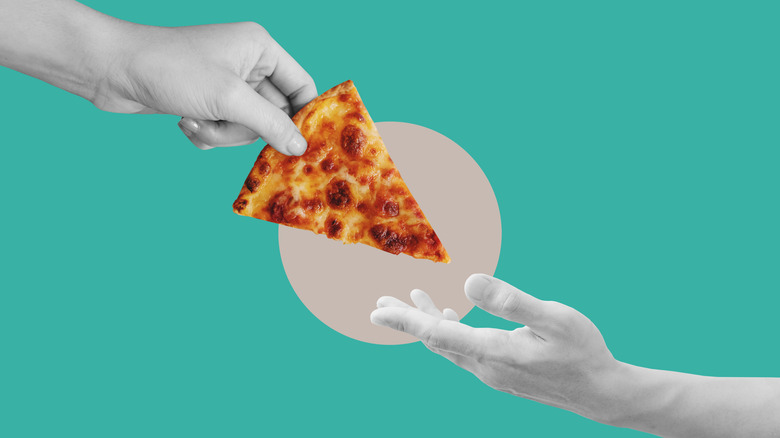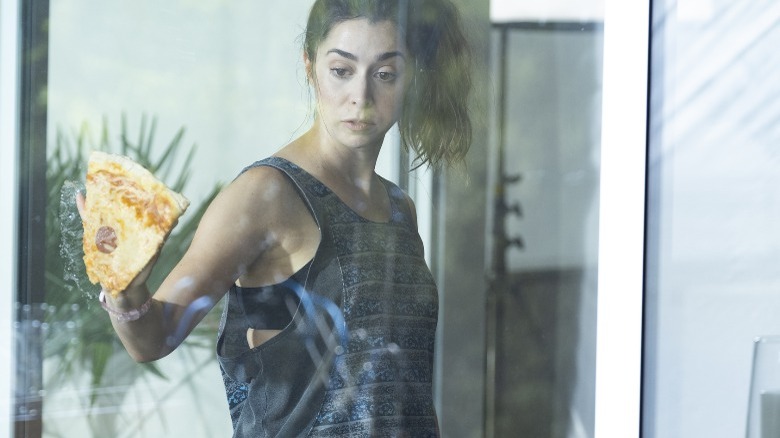How HBO's Sci-Fi Comedy Highlights The Simple Pleasure Of Eating Food
In the second season of HBO's sci-fi comedy "Made for Love," which premiered on the streaming platform last month, a loyal Gogol Hub worker presents a tray of ruby balls to a room of beige-suited technicians, all of whom have given up their normal lives for the promise of serving their tech billionaire employer for all of eternity. "I hope everyone's feeling hungry, because these 27-millimeter spheres contain the flavor and nutrients of a 36-ounce dry-aged ribeye," he says with measured elation. The Hub creator's wife, Hazel Green, whose presence in the pristine tech dome is only meant to last as long as it takes for the in-house oncologists to cure her father's cancer, promptly leaves the room. Now that her spouse — who was intent on keeping her in The Hub forever in the show's first season — has loosened his grip and removed the chip from her brain, she's allowed to trade in The Hub's nutrient spheres for the magnificently salty, greasy, and tactile foods of her humble home in the land of living.
In a recent interview with Eater, "Made for Love" creator Alissa Nutting spoke about the meaning behind the food in the show, and how the efficiency-focused Hub cuisine satirizes some infamously bizarre Silicon Valley diets.
The joy of eating pizza cannot be 'biohacked'
When you're a tech genius bent on fostering an immortal workforce to build a machine that will preserve human consciousness beyond death, efficiency and optimization are key. But people are not machines, and The Hub's single-bite meals in "Made for Love" — which make us think of Willy Wonka's three-course-dinner chewing gum — leave out a major source of human pleasure: The simple act of eating. "Protein shakes and Soylent and food cubes may provide all the nutrients the body needs, but they're no stand-in for the experience of biting into a good sandwich," writes Eater's Jaya Saxena.
"Made for Love" creator Alissa Nutting told the outlet that The Hub's futuristic meals were inspired in part by the dietary habits of some real-life tech-bros, like Twitter CEO Jack Dorsey. According to Business Insider, the man starts every morning with a glass of "salt juice" (water with Himalayan salt and lemon), which is "dispensed at Twitter offices around the world." Watching the show's heroine tuck into a slice of pizza or snack on potato chips provides a stark contrast to the "salt juice"-like provisions in The Hub's kitchen. "When I think about food, I think about taste and pleasure and satisfaction," said Nutting. "But I was looking at it through this tech lens where food is something that will 'biohack' my body and give me the greatest performance, regardless of things like taste or preference." Evidently, Hazel Green stands in Nutting's camp: Food is meant to be savored.

